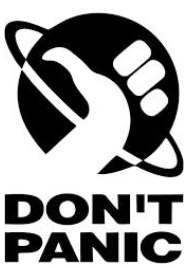Lately I have found an interest in philosophy. I would love to dig deeper into it when I get the time.
I just started reading Seneca’s Letters from a stoic and plan to read Tao te Ching next, as I always wanted to implement thoughts from Stoicism and Taoism in my life.
I’m aware that, randomly reading different philosophical works won’t give me much in-depth knowledge.
I want to know what’s a good way to go about it and the resources I could use.
How should I start?Why should I start?
This guy philosophies.
One of my favourite anecdote is the guy who was stopped by Greek police for generally looking suspicious, and accused of spying.
“But I’m just here for the conference! I am a philosopher”
“Prove it.”
" … I… well… Hmm… That’s actually… I mean… "
After about half an hour, they let him go.
Haven’t I already started? What is a ‘start’ anyway?
Take a community college introduction course.
It’s only partially good to read the big texts, but it is useless if you don’t know how to understand them in broader connections.
Agree. Turns out school is still a good way to learn things.
This is the first video of ten parts which is an entire Uni level philosophy 101.
It has a good grounding of all the important philosophical works and concepts.
Also I’m shocked the Stanford encyclopaedia of philosophy hasn’t been mentioned:
I’ve heard from philosophy grads that if you just read this entire thing you’ve basically got a philosophy degree.
Here is an alternative Piped link(s):
Piped is a privacy-respecting open-source alternative frontend to YouTube.
I’m open-source; check me out at GitHub.
I really dig Philosophize This
Not as in-depth as reading books of course, but it’s very pleasant to listen to and you’ll get a rough overview of who’s who and can then go on to reading something referenced in the podcast that interests you.
Agreed, it was my gateway to philosophy. It’s gives you a good idea of who the most famous philosophers were, and their greatest contributions. It’s very superficial, because you can only say so much in a 20 minutes format, but it’s a great start to find who you want to get into.
I want to thank you so much for suggesting this. I’m almost caught up with all the episodes of the podcast and I’m hooked. I just wish I had the time to follow up each episode with supplementary reading.
P.S: sorry for necroposting !
Hey, glad you like it. Such an awesome series, I really admire that guys ability to grasp and summarize these concepts so aptly.
You might like Michael Sugrue, too then https://youtu.be/7Kuk35VNSEc?si=vVHbLlL_vqglSKAq He also covers literature talking about the philosophy behind those books. Also incredibly good.
Here is an alternative Piped link(s):
https://piped.video/7Kuk35VNSEc?si=vVHbLlL_vqglSKAq
Piped is a privacy-respecting open-source alternative frontend to YouTube.
I’m open-source; check me out at GitHub.
Don’t think PhilosophyTube has been mentioned. Abby’s great at taking complex topics and condensing them down to understandable discourse, and the videos are funny to boot. She used to do videos focused on philosophy but now applies that philosophy to popular subjects.
You have already started, my friend
Crash Course by PBS features has an entire Introduction to Philosophy course for free on YouTube
Also, it’s hosted by Hank Green who is a great presenter and very charming. I’ve watched the whole thing a couple of times now. It’s very well explained and never dull.
Here is an alternative Piped link(s):
Crash Course by PBS features has an entire Introduction to Philosophy course for free on YouTube
Piped is a privacy-respecting open-source alternative frontend to YouTube.
I’m open-source; check me out at GitHub.
If you’re still not very knowledgeable, “Sophie’s World” by Jostein Gaarder is an awesome read. Don’t let the fact that it’s a novel fool you, it’s perfect to understand who’s who across philosophy’s history.
I came here to say this. The Tao of Pooh and the Te of Piglet by Benjamin Hoff are also solid reads.
Study it. Go to a university or community college. There are several offerings for adult education out there. This is ‘the best’ way to do it.
In case you don’t want that: Take another form of couse or read a book that is made specifically to teach about the subject or give a proper introduction.
Comments be like: start by reading the philosophy topics I like and I am biased towards
randomly reading different philosophical works won’t give me much in-depth knowledge.
I’d rate reading different philosophical works much higher than reading modern summaries of philosophical movements.
I’ve rarely found that the generalization of an ancient philosopher brings much into my life, but often found that a specific turn of phrase or idea in their actual writing has offered a great deal.
As for recommendations, my top recommendation is Plato’s The Apology which can be read in an afternoon and does a wonderful job in capturing the value of Socrates’ commitment to rejection of false positives and negatives while also contextualizing the depth of that commitment against social pressures.
After that I’d recommend Leucretius’s The Nature of Things mostly for the fact it’s the only extant work from antiquity to have effectively proposed evolution nearly two millennia before Darwin - a detail that’s frequently overlooked in the modern discussions of Epicureanism which tend to focus on its broader discussion of hedonism in the face of death.
I’d strongly recommend reading the philosophers themselves directly, sampling from each and continuing to read those that resonate with you, taking pearls of wisdom where you find them. And skip those you find insufferable to read.
Start with a survey book or course. Do not start by diving directly into the primary literature.
As far as where to start - that’s really something that should be driven by your interests. You don’t need to start with the Greeks and work your way forward.
I’d say to start with an overview of modern philosophy. It will likely be more familiar to you in terms of the problems and the thinking patterns, and might apply more directly to problems you’re interested in. If you find something that you want to learn more about, turn towards “Intro to X,” and from there branch out into the individual philosophers and their works.
When I started diving in to philosophy I found The Cambridge Dictionary of Philosophy to have handy to go “What the fuck did I just read?!” too
I’d probably start with Socrates-Plato-Aristotle. They weren’t the first, but they basically formed the framework through which we think about philosophy. As you look into specific ideas in that context, you’ll find references to people who disagreed with, reinforced, and transformed their ideas. That’s when I’d start going down rabbit holes one at a time based on interesting historical responses.
Who came before Socrates? I don’t think there’s any historical evidence of his existence other than Plato talking about him simply because he’s so far back…unless you’re talking about beyond Greece.
There are a handful in the West, and several in the East. Thales predates him in Greece, Confucius predates him and provides similar insight to philosophical frameworks in the East, not to mention many others around the world and further in the past. It’s fine to start at one point and then research previous influences later.
This is going to sound dead obvious, but I’d honestly recommend some Intro to Philosophy/Logic/Ethics books, e.g. Logic: A Very Short Introduction or The Logic Manual. I know you’re not necessarily looking at logic specifically, btw, but it’s one of the regular recommendations with philosophy more generally, especially if you branch out to other thinkers.
Also a somewhat common introductory text that I personally didn’t care for is Sophie’s World, which acts as a narrative historical overview of Western philosophy. If you want that sort of thing you may be just as well with a text like A Little History of Philosophy, which might be available via your library.
Finally, for ethics, you might look to Hornbook Ethics and/or Justice: What’s the Right Thing to Do? Besides A Little History of Philosophy, if memory serves all of these I’ve linked to have at one point or another been required texts for different philosophy and ethics courses depending on where one attends, so in reading these independently you’d basically be getting some intro level course education on the cheap.
Honestly though, I’d say reading the primary texts as you’re doing isn’t a terrible way to go about it, as that’s what many philosophy courses would have you do anyway. What I would recommend alongside that is the same as I’d recommend for any older text then, which is to read up on the historical context to get a better sense of what may have influenced their writing, how they were received by their peers and broader community (if they were noticed at all during their life), and develop your understanding from there.
Sorry if this is a bit much, but I hope it helps! Be sure to check your local libraries for any of these before buying them btw, as they may have hard copies available despite not having digital copies. Also remember that college/university libraries may be an option too, albeit likely more costly if they do offer a library card to borrow materials.
Let Michael Schur guide you! - Watch The Good Place and read How to Be Perfect










